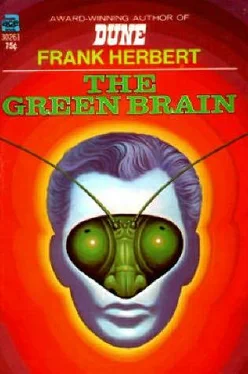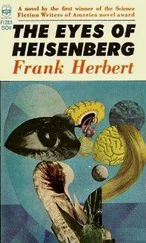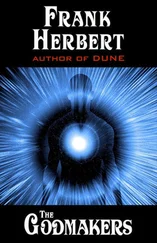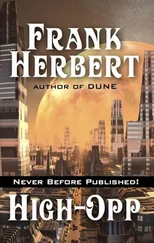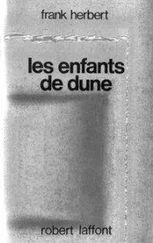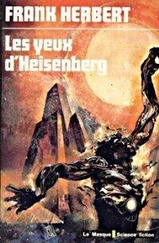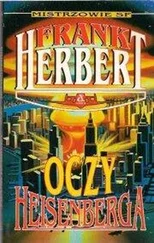In that corner, the coyote, a symbol of cowardice, had whirled and slashed the two dogs into bloody cravens that had fled with tails between legs. Joao, awed, had watched and allowed the coyote to escape.
Remembering that scene, Joao sensed that it encapsulated the problem of Chen-Lhu. Something or someone has trapped that man in a corner .
“I am going to sleep now,” Chen-Lhu said. “Awaken me at midnight. And please—do not become so distracted that you fail to peer ahead with your ears.”
To hell with you! Rhin thought. And she made no attempt at silence as she pushed herself across the seat into Joao’s arms.
“We must place part of our force below the rapids,” the Brain commanded, “in case the humans escape the net as they did before. They must not escape this time.” And the Brain added here the overhive-survival-fear-threat symbol to produce the greatest degree of angry alertness among messengers and action groups.
“Give the little-deadlies careful instructions,” the Brain ordered. “If the vehicle eludes our net and passes the rapids safely , all three humans must be killed.”
Golden winged messengers danced their confirmation on the ceiling, fluttered out of the cave into the gray light that soon would be night.
These three humans have been interesting, even informative , the Brain thought, but now it must end. We have other humans, after all… and emotion must not figure in the logical necessities .
But these thoughts only aroused more of the Brain’s newly learned emotions and brought the nurse insects scurrying to adjust their charge’s unusual demands.
Presently the Brain put aside the subject of the three humans on the river and began to worry about the fate of its simulacra somewhere beyond the barriers.
Human radio carried no reports that the simulacra had been discovered… but this meant nothing really. Such reports might be suppressed. Unless they could be located by their own kind and warned (and that soon), the simulacra would come out. The danger was great and the time short.
The Brain’s agitation brought its attendants to a step they seldom took. Narcotics were brought up and administered. The Brain sank into a lethargic, drowsing half-sleep where its dreams transformed it into a creature like the humans, and it stalked a dream trail with a rifle in its hands.
Even in its dream, the Brain worried lest the game elude it. And here the nurse insects could not reach and minister. The worry continued.
Joao awoke at dawn to find the river cloaked by a restless drapery of fog. He felt stiff and cramped, his thoughts confused by a feverish sensation as fuzzy as the fog on the river. The sky held the color of platinum.
An island shrouded by the fog’s ghost-smoke loomed ahead. The current moved the pod to the right past matchstick piles of logs and flooded remnants of bushes and grass that bent downstream and vibrated with the current.
The pod floated definitely low on the right. Joao knew he should go out and pump the float. He knew he had the energy to do the job, but he couldn’t find energy to set himself into motion.
Rhin’s voice intruded: “When did the rain stop?”
Chen-Lhu answered from the rear, “Just before dawn.” He began to cough, then: “Still no sign of our friends.”
“We’re floating low on the right,” Rhin said.
“I was about to see to that,” Chen-Lhu said. “Johnny, I presume I just put the sprayhead tube into the float and work the toggle?”
Joao swallowed, astonished at how grateful he felt that Chen-Lhu had volunteered for this job.
“Johnny?”
“Yes… that’s all you do,” Joao said. “The inspection hole in the float has a simple snap-lock.”
Joao lay back, closed his eyes. He heard Chen-Lhu go out the hatch.
Rhin looked at Joao, noting how tired he appeared. His closed eyes were death’s-head sockets rimmed with shadow.
My latest lover , she thought. Death .
The thought confused her and she wondered at herself that she could find no warmth of feeling this morning toward the man who had drugged her with passion during the night. A tristia post coitum had seized her, and now Joao seemed merely another mote of awareness that had touched her quite by accident and paused to share a moment of explosive brilliance.
There was no love in that thought.
Nor hate.
Her feelings now were as nearly sexless and clinical as they’d ever been. The coupling in the night had been a mutual experience, but morning had reduced it to something without savor.
She turned away, looked downstream.
The fog mist had thinned. Through it she glimpsed a black face of lava rock perhaps two kilometers distant. It was difficult to judge the distance, but it towered above the jungle like a ghost ship.
She heard air sucking in the pump then and noted how the pod had returned to an almost level position.
Presently, Chen-Lhu returned. He brought a brief air of cold dampness that stopped when he sealed the hatch.
“It’s almost cold out there,” he said. “What’s the altimeter reading, Johnny?”
Joao aroused himself, peered at the dash. “Six hundred and eight meters.”
“How far do you think we’ve come?”
Joao shrugged, remained silent.
“As much as a hundred and fifty kilometers?” Chen-Lhu asked.
Joao looked out at the flooded banks rushing past, at the current sucking gnarled, obscene roots. “Perhaps.”
Perhaps , Chen-Lhu thought. And he wondered why he felt so exhilarated and full of energy. He was actually hungry! He dug for the ration packets, distributed them, then ate in wolfing gulps.
A barrage of rain whipped against the windshield. The pod turned and dipped. Another blast of wind shook them. The pod skittered in it across lines of slapping wavelets. The wind diminished, but the rain continued in sheets that blotted all color from the passing shores. The wind died entirely, but still the rain fell, its drops so thick they appeared to jiggle and dance horizontally.
Joao stared out at a mottled granite shore that passed like a surrealist backdrop. The river appeared at least a kilometer wide here, its dirty brown surface turgid and rolling and spotted by clumps of trees, floating sedge islands, drifting logs.
Abruptly, the pod lurched. Something bumped and scraped beneath the floats. Joao held his breath in fear the patched float would be opened to the torrent.
“Shallows?” Chen-Lhu asked.
A water-logged snag lifted out of the river on their left, rolled and dived like a live thing.
Rhin whispered, “The float…”
“It seems to be holding,” Joao said.
A green beetle darted in over the snag, landed on the windshield, waved its antennae at them and departed.
“Anything that happens to us, they’re interested,” Chen-Lhu said.
Rhin said, “That snag—you don’t think…”
“I’m ready to believe anything,” Chen-Lhu said.
Rhin closed her eyes, muttered, “I hate them! I hate them!”
The rain slackened, fell off to occasional drops that spattered the river or thudded against the canopy. Rhin opened her eyes to see pale avenues of blue opening and closing in the clouds.
“Is it clearing?” she asked.
“What’s the difference?” Chen-Lhu asked.
Joao stared out across the rain-flattened grass of a savannah that appeared on their left. The grass ended at an oily green jungle wall some two hundred meters back.
As he looked, a figure emerged from the jungle and waved and beckoned until they drifted out of sight.
“What was that?” Rhin asked, and there was hysteria in her voice.
The distance was too great for certainty, but the figure had looked to Joao like the Padre.
Читать дальше
